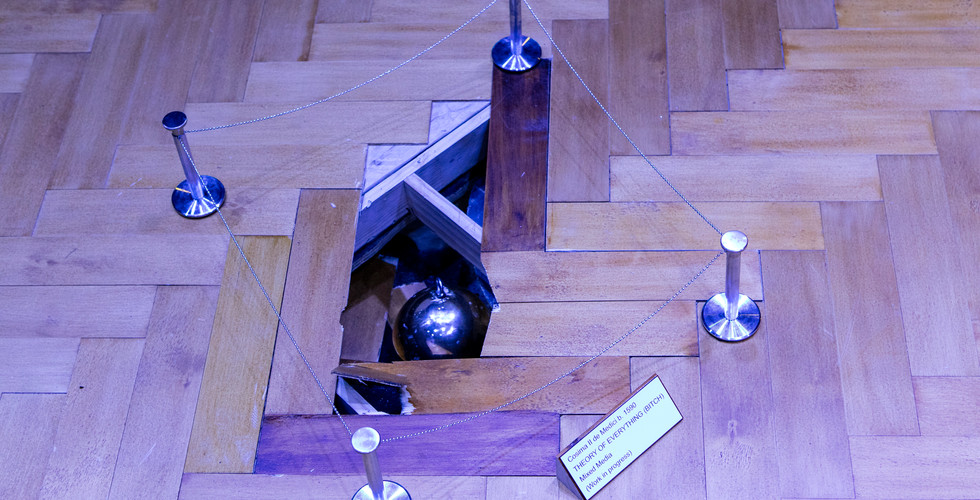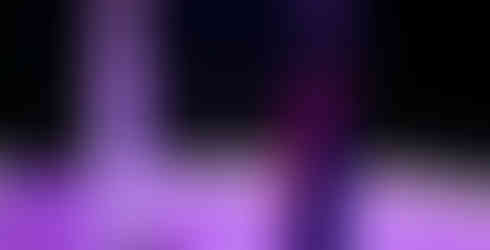Review: Life of Galileo at Belvoir
- Aug 10, 2019
- 4 min read
By Fred Pryce
Life of Galileo faces the same problem as many historical dramas do - we already know what’s going to happen. Even to those (like me) not fully aware of all of Galileo's scientific discoveries 500 years ago, you get the gist: the noble, steady progression of science is pitted against the entrenched dogma of the all-powerful Catholic Church, and eventually wins out, though Galileo is prosecuted for heresy as a scapegoat. And, to be fair, this is basically what happens. But Bertolt Brecht was never one for broad strokes. His philosophy is one of details, of ideological conflicts and the constantly revolving doors of history. Epic theatre entertains and provokes you primarily through your intellect rather than your emotions, though you’ll find the latter often sufficiently stoked anyway, and director Eamon Flack’s production at Belvoir St Theatre takes this strategy to an admirable extreme.
After all, it makes sense for a play about the scientific process to be occasionally a little dry; giving into cheap histrionics would only undermine the script’s dedication to fighting oversimplification, and its belief that humanity is greater than our base, blind instincts. The base conflict here is about whether the Earth revolves around the Sun or vice versa (I’ll leave that one to you), but what is more important is how this ties into the context of centuries of Church-led belief and political control, with the economic and historical implications of this shift far more dangerous than the somewhat naive Galileo thinks at first. Tom Wright’s slightly Australian-ised adaptation treats the work as a series of plays-within-plays, with each scene exploring its own themes and characters with an individual world (the university, the monarchy, the Inquisition). Though these can be fascinating individually, it does mean that there isn’t the most dramatic heft for a while, and the first half tends to be a lot of set-up to Galileo’s world.
The staging (designed by Zoë Atkinson and Paul Jackson) encourages this emotional distancing, being simple to the point of bare: a wooden floor, only a few actors, with text indications of time and place to help us keep track of the plot, which skips around at a fast clip. There is little spectacle to distract us being immersed in the back-and-forth of extended debate, and exciting stagecraft is used sparingly and economically, every prop serving double duty as a shifting symbol. The one piece of flair is the styling of the Pope as a contemporary pop star, flocked by a glitzy and iPhone-touting entourage. A cute touch, if inconsistent with the rest of the play and its plainly modern costuming. But the bulk of the play is Galileo wandering around the stage in circles (the theater is fittingly laid out in the round), while other characters emerge from all sides to wander around him - moons orbiting planets. However, Galileo, as played by Colin Friels, tends not to be the most compelling of heroes, though always and admirable presence. His absolution in scientific thought means that he’s almost fully-formed from minute one, and the cavalcade of doubters holding him back leans towards frustrating rather than compelling. The small cast smoothly fills in a host of roles, often distinguished by just a couple of traits, suiting the tendency of Brecht to value actors as tools for his ideas, rather than independent voices - he’s always the star of the show.
Brecht began writing the script in 1938, and completed it after the war was done, after Hiroshima, Nagasaki, and genocide driven by chemicals. The man who finished it was clearly a different, more cynical, more afraid one, and this is reflected in Galileo’s journey, from someone optimistic that science would always be enough to drive progress, to an outcast of the state forced to think in radical, pragmatic ways. The final scenes imply a quite unglamorous notion of abandoning hero worship and romanticism in favour of practical, tangible progress, and asks us an all-important question: for what are we working? Make no mistake: despite the introductory point of science, this is a Marxist work through-and-through, one explicitly concerned with the machinations of capital, the slow-moving cogs of history, and the restrained power of the working class. In a world where Google and Amazon’s tech breakthroughs are aiding the US military, while the CSIRO has its budget slashed, its vitally urgent.
Such is made apparent by the play’s highlight, a seated conversation that opens Act 2, between Galileo and a student of both science and the Church. It is here that Brecht’s purpose gains razor-sharp clarity, through his tendency to use characters as mouthpieces for ideological conflict, of which his inevitably wins out (Galileo, something of a stand-in for the author, also framed his writings in the form of a fictional conversation). The student argues that the Church is caring for peasants by not disrupting their carefully ordered way of life, one of constant hard work made bearable by a belief that God is watching from the heavens. Galileo mocks his pretension that they would be so simple as not to cope with the revelation, and his innocence that he thinks the Church wants to help the peasants, not control them. In the most Brechtian flourish of the night, he briefly addresses the audience, asking us to personally indulge in what discoveries the student’s mind must be racing through. It’s thrilling.
You could spend aeons reading and discussing Brecht’s work, and this play is no exception, with its numerous translations, epic scale, and historical weight. It’s a testament to his mind that so much thought can be conveyed by a mostly bare stage and the power of dialogue, even if this production could have used a little more pizzazz. At this point it might seem like old hat, but we are still very much living in Brecht’s world.
Image Credit: Brett Boardman
All opinions and thoughts expressed within reviews on Theatre Travels are those of the writer and not of the company at large.




































































































